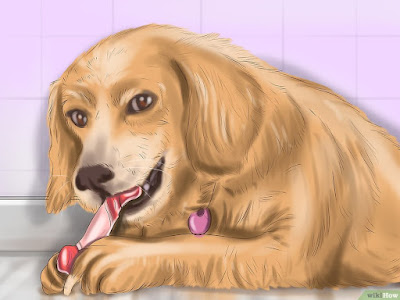Dogs that frequently bite their owner's hands or exhibit excessive playfulness may be showing signs of hyperactivity. Hyperactivity can be troublesome for pet owners and may even result in injuries for the dog. Here’s how to identify and manage this behavior effectively, as outlined by Blog Chó Mèo.
1. Causes of Hyperactivity in Dogs
1.1 Breed Characteristics
- Certain breeds are naturally more energetic:
- **Herding Dogs**: German Shepherds, Australian Shepherds, Border Collies, Belgian Malinois.
- **Hunting Dogs**: Beagles, Poodles, Afghan Hounds, Basset Hounds.
- **Sporting Dogs**: Golden Retrievers, Labrador Retrievers, Dalmatians.
1.2. Diet
- A balanced diet that matches a dog’s physical activity level is crucial. Nutritional deficiencies or allergies can lead to hyperactivity.
1.3. Environment
- Dogs in stimulating environments or those that lack socialization and exercise may exhibit hyperactive behavior.
1.4 Genetic Factors
- Some dogs are genetically predisposed to hyperactivity due to an abundance of certain genes. Veterinary consultation is recommended for an accurate diagnosis.
2. Signs of Hyperactivity in Dogs
- Continuous running and jumping, inability to relax.
- Easily distracted and unable to concentrate.
- Overreactive to normal stimuli.
- Aggressive behavior under stress.
- Poor interaction with other dogs.
- Elevated heart rate and breathing.
3. Home Remedies to Calm Hyperactive Dogs
3.1. Regular Exercise
- Allocate 30 minutes to 1 hour daily for activities such as walking, playing fetch, or swimming to help manage energy levels.
3.2 Training Techniques
- Consistent training to follow commands and perform tricks can help channel energy productively. Positive reinforcement and professional training classes may also be beneficial.
3.3 Healthy Diet
- Avoid processed foods with additives and provide high-quality, recognizable ingredients. Ensure the diet is rich in vitamins and minerals.
3.4. Structured Routine
- Maintain a daily schedule for feeding, walking, exercising, and sleeping to help reduce stress and anxiety.
3.5. Veterinary Consultation
- If symptoms persist despite these measures, seek veterinary advice. Medication or additional strategies may be recommended.
By recognizing the causes and implementing these strategies, you can help your hyperactive dog lead a calmer, healthier life. Always provide attentive care to your furry friend!



